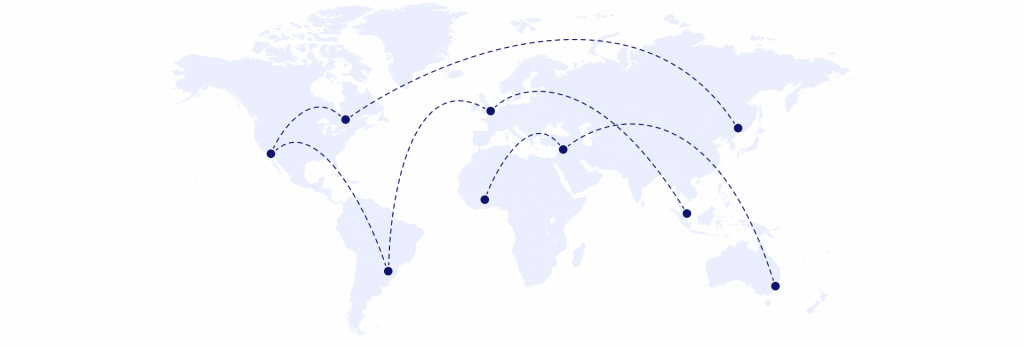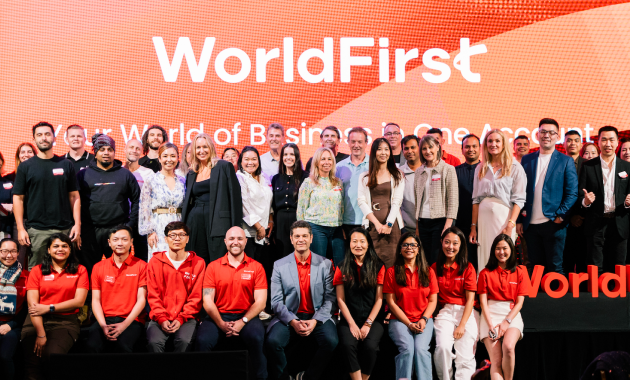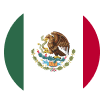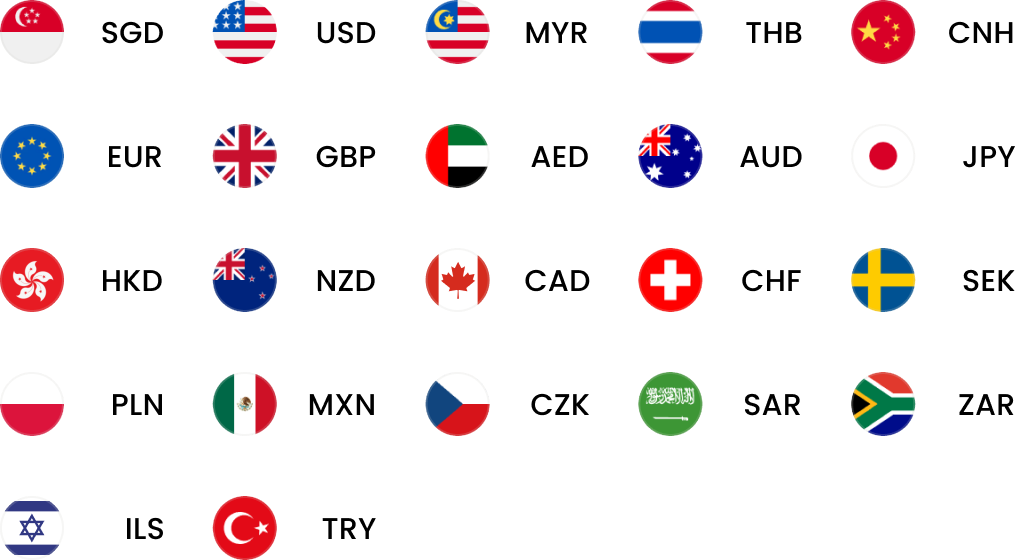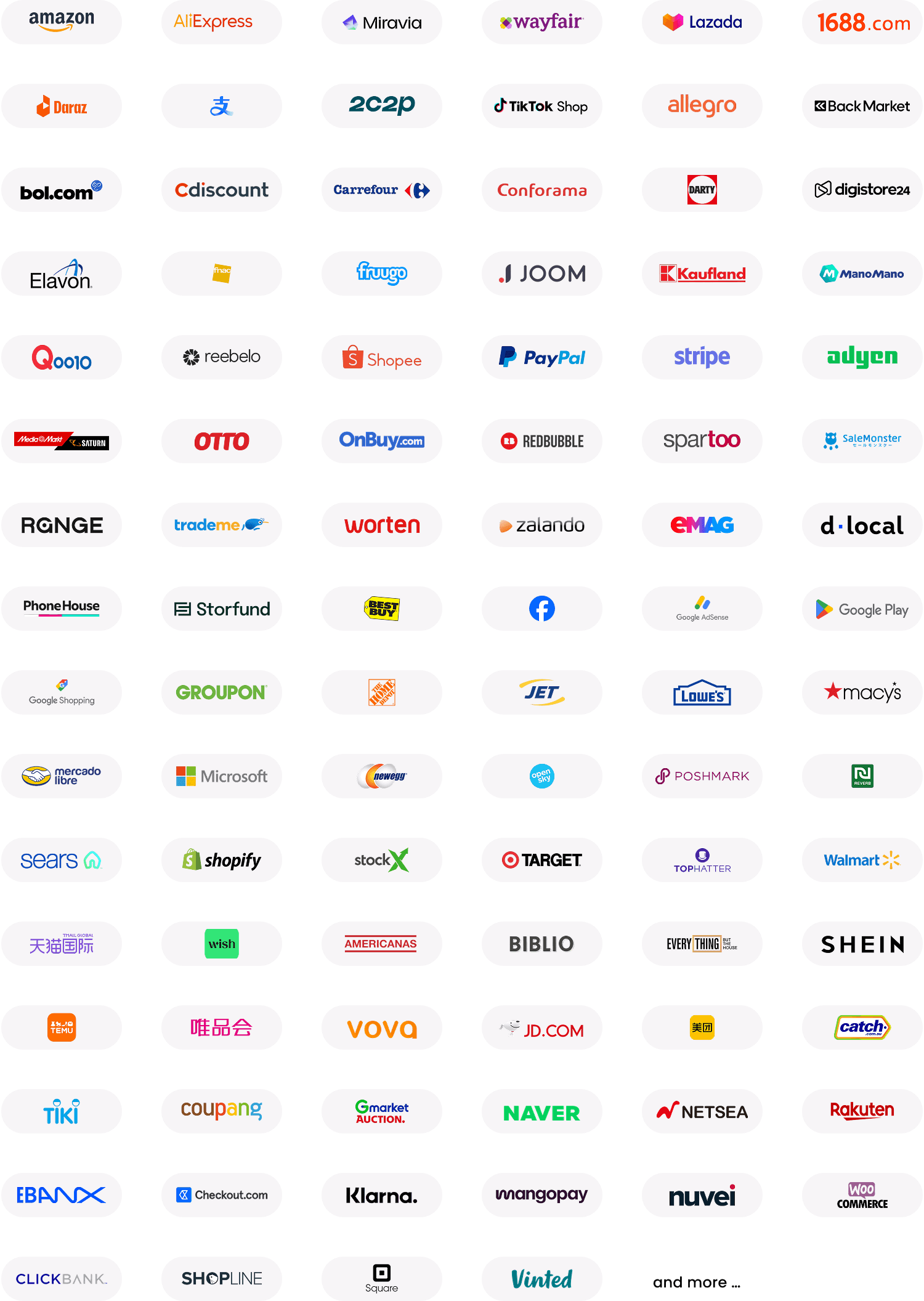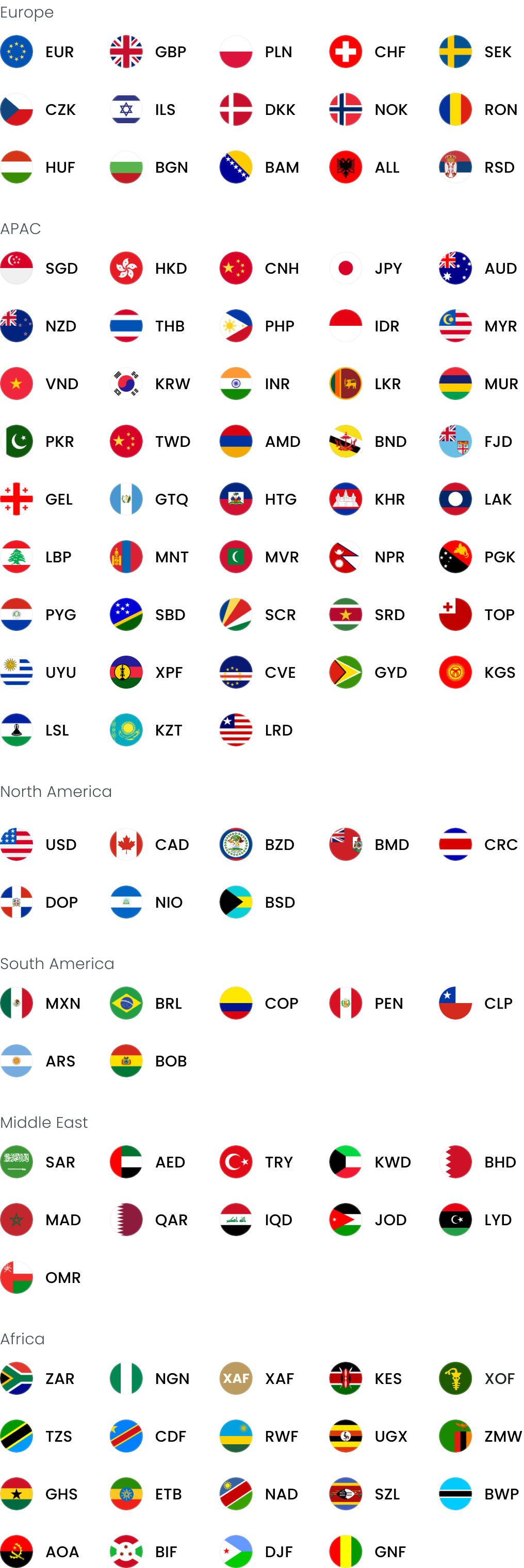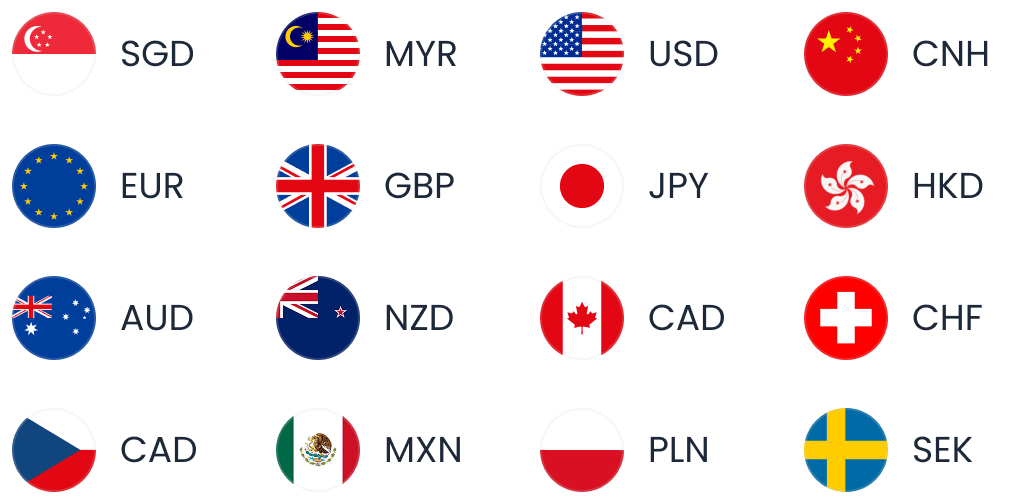What to know about scaling an international business in Malaysia
Last update: 21 May 2025

In the heart of Southeast Asia, Malaysia boasts a strategic geographic location, strong economic growth and a welcoming business environment. If you’re a Singaporean business looking to expand internationally, it makes sense to start in Malaysia.
But while the opportunities are plenty, there are challenges and costs when it comes to scaling your business abroad. For instance, you’ll have regulation and tax agreements to navigate, and you’ll face the costs associated with currency exchange and making international payments.
In this article, we share some tips to make your international business in Malaysia a success. We’ll also introduce you to the World Account, our multi-currency account for businesses that makes it simpler and more affordable to scale globally.
We cover:
- The opportunities of scaling in Malaysia as an international business
- What are the challenges and costs of doing business in Malaysia?
- Practical tips for international business expanding into Malaysia
- How WorldFirst’s multi currency account can support your international business growth
Growing abroad and need support with cross-border business payments? Open a multi-currency account with WorldFirst and save on international transactions and FX costs.
The opportunities of scaling in Malaysia as an international business
If you’re a Singaporean business looking to scale internationally, there are three key reasons why you should consider Malaysia: it’s extremely business-friendly, it has a tech-savvy population and it’s a diverse, fast-growing economy.
Let’s break each of these down in detail:
- Malaysia is one of the world’s leading nations for the ease of doing business. Up until 2020, the World Bank produced the Ease of Doing Business index, which placed Malaysia in position 12 globally. While the renowned index has since been retired, Malaysia continues to be an ideal place to scale – particularly for Singaporean businesses.
For instance, like Singapore, Malaysia is a member of ASEAN. And, in the first quarter of 2023, Singapore was the largest source of foreign investment in Malaysia. There’s also the additional benefit that, in business contexts in Malaysia, you’ll find many people speaking the English language alongside Malay.
- Malaysia has an extremely tech-savvy population, making it ideal for digital businesses in particular. Internet usage in Malaysia is one of the highest in the world at 97.4%, higher than South Korea and the USA. Malaysian consumers are increasingly using online shopping and tech-driven solutions too – enabling e-commerce businesses to thrive.
These demographic trends are backed by government initiatives supporting the digital economy too. The aim is for the digital economy to contribute 22.5% of GDP, according to reports.
- Malaysia is a diverse, high-growth economy. Over the last decade, GDP growth in Malaysia has averaged around four percent each year, according to the IMF. It’s a sign of an economy with strong fundamentals and a promising future. According to one estimate, ASEAN – the trade bloc including Malaysia, Thailand, Vietnam, Indonesia and six other countries – will collectively make up the fourth largest global economy by 2050.
One of Malaysia’s particular strengths is its diversity. Alongside the modern business hotspots of Kuala Lumpur and Penang – full of entrepreneurs and international students – you’ll find rural regions full of opportunities in agriculture and manufacturing.
What are the costs of doing business in Malaysia?
While Malaysia has many opportunities for international businesses looking to grow, there are always costs to consider when scaling across borders. Here are just some of the costs and challenges you’ll need to be prepared for:
- You’ll have basic fees to pay to get set up in Malaysia. These include registration fees, legal bills and the cost of any licences you might need. For instance, if you’re an e-commerce brand, you’ll need to get a business licence from the Suruhanjaya Syarikat Malaysia (SSM).
- You’ll need to budget for business overheads and taxation. Rents for offices or shop spaces are quite reasonable, especially outside of bustling city centres such as Kuala Lumpur. Plus, wages for skilled workers are generally lower than in Singapore, without a compromise in quality.
Be aware that Malaysia’s corporate tax rate is 24%. Resident Malaysian businesses enjoy a reduction on the tax rate on amounts up to RMB 600,000.
- You’ll have the costs of digital tools and international marketing too. Costs can include investments in technology and services, such as high-speed internet, cybersecurity solutions, cloud computing services and digital marketing costs.
Digital marketing and social media campaigns tailored to local audiences are cost-effective but require a good understanding of local consumers. On the other hand, using local marketing agencies or consultants incur additional fees on top of marketing spend, but could help you navigate the market more effectively.
- You’ll be subject to fees for international transactions and currency exchange. Whenever you’re doing business internationally, you’ll need to manage different currencies. Often, businesses do this by opening a local bank account in each country where they operate. But this can increase your costs and add an extra hassle to your business management.
While we can’t save you money on all of these costs, at WorldFirst we can help you manage the burden of making international payments.
With a World Account, you can hold funds in 20+ currencies, including Malaysia ringgit (MYR) and Singapore dollar (SGD). This way, you can save money on conversion fees and pay any local suppliers much more quickly.
Find out more below.
Practical tips for international businesses expanding into Malaysia
So, what’s our advice for any international business looking to set up in Malaysia? Here are our tips to increase your chance of success.
- Leverage established online marketplaces if you’re an e-commerce business. Selling on e-commerce marketplaces such as Lazada, Shopee or TikTok Shop can significantly reduce the initial setup costs associated with physical stores or local entities. Plus, you can tap into a vast network of consumers already familiar with online shopping. On the flip side, you’ll need to consider your pricing strategies to optimise your competitiveness.
- Consider whether you want to collaborate with a local company or set up locally yourself. Collaborating with a local company can be a strategic way to enter the market, as you’ll be able to leverage their existing local knowledge, networks and established systems. However, setting up your own branch or subsidiary in Malaysia might be the way to go if you want complete control over your operations. You may need to invest more to begin with, but you’d get direct market access and full business control.
- Leverage personal relationships to improve your global expansion plan. Malaysia has many cultural similarities to Singapore. But there are subtle differences in business etiquette that can affect your success. For instance, there’s a big emphasis on respect and hierarchy, meaning communications are often polite and indirect.
In this context, personal relationships are important. It might take several meetings and social gatherings to build trust before finalising an agreement.
- Make the most of Malaysia’s free trade agreements. For instance, the ASEAN Free Trade Area (AFTA) allows regional members to reduce tariffs. This translates to lower costs when exporting goods to Malaysia, making them more competitive in the Malaysian market.
Other international trade deals such as the Comprehensive and Progressive Agreement for Trans-Pacific Partnership (CPTPP) and the Regional Comprehensive Economic Partnership (RCEP), while not restricted to the region, also reduce trade costs. They streamline business operations by aligning regulations across countries. Foreign companies can expect more stable trade conditions and better protection for investments and intellectual property.
- Use a multi currency business account for faster international transactions and reduced FX costs. Fast and reliable payment systems are vital in Malaysia, especially for international transactions. To satisfy your suppliers and other businesses you need to pay, use a multi-currency account such as a World Account. It lets you hold, convert, pay and get paid in different currencies, so you can speed up transactions and bypass constant currency exchanges.
- Open 20+ local currency accounts and get paid like a local
- Pay suppliers, partners and staff worldwide in 100+ currencies
- Collect payments for free from 130+ marketplaces and payment gateways, including Amazon, Etsy, PayPal and Shopify
- Save with competitive exchange rates on currency conversions and transfers
- Lock in exchange rates for up to 24 months for cash flow certainty
How WorldFirst’s multi currency account can support your international business growth

At WorldFirst, our mission is to provide global businesses with simple and secure cross-border payments. If you’re a Singaporean business looking to expand into Malaysia, our payment solutions can help you save on the costs of cross-border transactions.
With a World Account, you can create currency accounts in 20+ currencies, including MYR and SGD. Plus, you can make payments in 100+ currencies.
In the rest of this article, we share how WorldFirst can support you to successfully launch an international business in Malaysia.
Receive and hold SGD, MYR and 20+ currencies in one platform
One of the major hassles of doing business across borders is that you typically need a separate bank account in the local currency of each country where you operate. This results in account maintenance fees and high costs when sending money from account to account.
But with a World Account from WorldFirst, you can create currency accounts in 20+ currencies, including SGD, MYR and major currencies such as USD and EUR. Then, you can manage all of your currencies in a single digital platform.
When you set up an account in each currency, you’ll receive local account details. It means that you can take advantage of local payment networks, rather than depending on international transactions – which can take up to six days to settle. As a result, you can pay your Malaysian suppliers much more quickly, in their local currency.
Plus, when you want to send your money home to Singapore, you won’t have any transaction fees to worry about. Instead, simply send your funds from one currency account to another, at competitive currency exchange rates.
Make payments in 100+ currencies at competitive FX rates
While you can hold funds in over 20 currencies, you can make payments in over 100. Wherever you want to do business and whoever you want to pay, WorldFirst helps you do it affordably.
You can make currency conversions in three ways with WorldFirst, so that you can get the rate that’s most appropriate for you:
- Make instant currency conversions at a live rate with spot contracts. These are the fastest way to make a FX exchange, allowing you to sell currency based on the market rate.
- Lock in an exchange rate with a forward contract. You can agree to an exchange rate for up to 24 months, to make your cashflow more predictable.
- Set a target rate that executes automatically. If you want to exchange currency at a particular rate, you can place a firm order and the transaction will execute 24/7, without the need to monitor the market.
This way, you can ensure you’re getting the most competitive rates – in any currency – for the particular type of business you’re doing.
For instance, if you have suppliers in China, you can use a forward contract to lock in an exchange rate from SGD or MYR to CNH. This way, you know exactly how much you’re spending on supplier payments for the next two years, for better budget management.
Connect to 130+ local marketplaces and payment gateways
Alongside our range of solutions for currency exchange and international payments, at WorldFirst we offer specific tools for e-commerce brands too.
For instance, if you’re a digital business looking to sell across borders, we make it easy to sell on e-commerce marketplaces. Using your World Account, you can connect with and sell on 100+ marketplaces, such as Amazon, Shopee, Etsy, Temu and more. Plus, we have a direct integration with TikTok Shop, so you can withdraw funds effortlessly.
Whenever a marketplace asks you to prove the ownership of your bank account, you can download a verification letter instantly.
At WorldFirst, we’re also the official payment partner of Chinese wholesale sourcing platform 1688.com. Simply connect your World Account to your 1688 account and you can make payments instantly without needing a Chinese bank account.
Ready to grow your business in Malaysia? Open a World Account and save on international transactions
In this article, we’ve shared some of the opportunities and challenges of scaling into Malaysia as an international business.
If you want to grow internationally while saving on the costs of cross-border payments, you need a multi-currency account. The World Account can save you money on international transactions and FX costs – while helping you sell on e-commerce marketplaces more easily.
Want to get started and see how it works? Open a World Account today.

Businesses trust WorldFirst
- Almost 1,500,000 businesses have sent US$500B+ around the world with WorldFirst and its partner brands since 2004
- Your money is safeguarded with leading financial institutions
